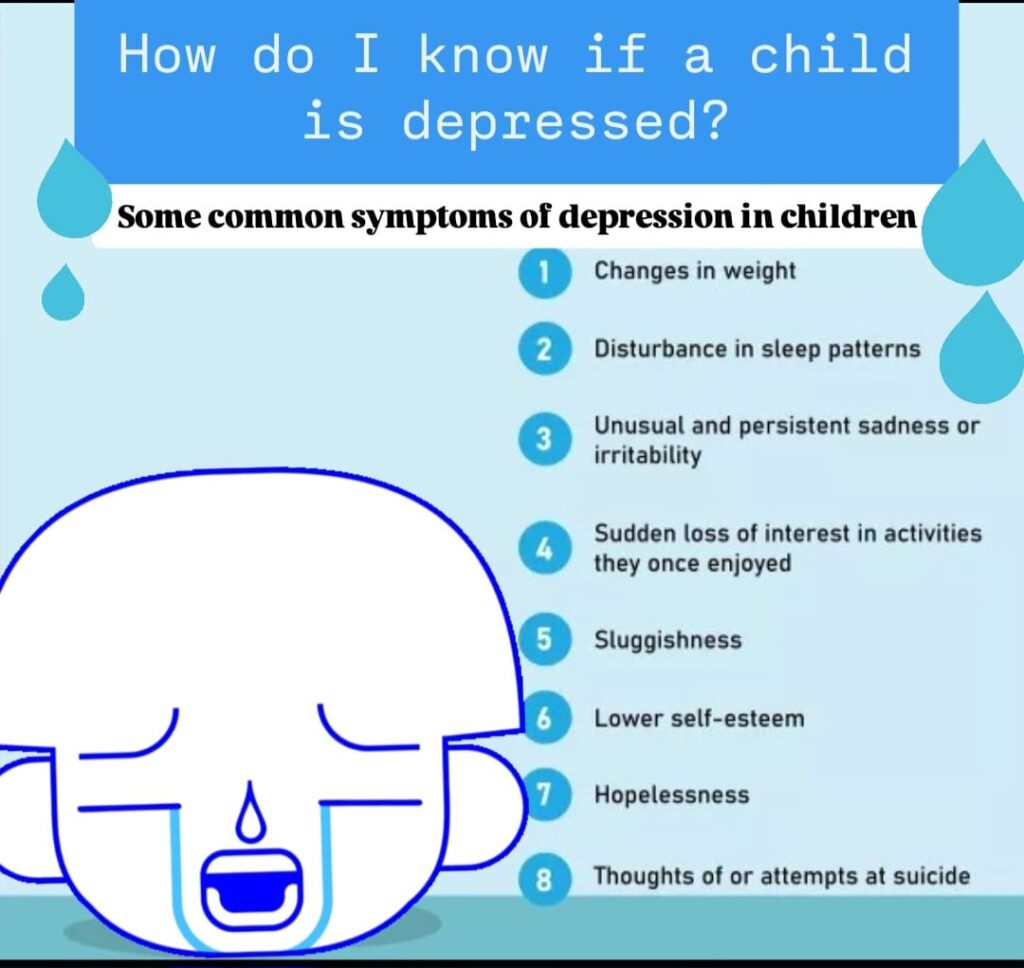
However, when they noticed she was losing weight and struggling to sleep, they knew something deeper was going on.
Understanding Child Depression:
Depression in children often goes unnoticed because it’s commonly mistaken for normal emotional ups and downs. However, when a child’s behaviour and mood change significantly and persistently, it’s crucial to pay attention. Child depression is not just feeling sad or “down” for a while; it’s a serious mental health condition that affects how a child feels, thinks, and behaves.
Symptoms Explained:
1. Changes in Weight: Children like X may lose interest in food, leading to noticeable weight loss. Others might start eating more, using food as a comfort mechanism, resulting in weight gain.
2. Disturbances in Sleep Pattern: Insomnia or excessive sleeping can be a red flag. X, once an early riser, might start struggling to fall asleep or waking up frequently during the night
3. Sadness or Irritability: While sadness is commonly associated with depression, in children, it can manifest as irritability. X might become unusually short-tempered.
4. Sudden Loss of Interest in Activities They Once Enjoyed: One of the most telling signs is when a child like X stops engaging in activities they once loved.
5. Sluggishness: A child with depression might seem constantly tired, moving or speaking more slowly than usual. X, who was once full of energy, might now prefer to stay in bed, struggling to find the motivation.
6. Low Self-Esteem: Depression can severely impact a child’s self-view. X might start expressing feelings of worthlessness, saying things like, “I’m not good at anything”
7. Hopelessness: Children with depression may seem pessimistic about the future. X might start saying things like, “What’s the point of trying?” “Nobody likes me.”
8. Thoughts of Suicide: In severe cases, children may express thoughts of wanting to disappear. These expressions should never be ignored, as they signal a need for immediate professional help.
Depression in children is serious but treatable. Early intervention, understanding, and professional support can make a significant difference, helping children like X reclaim their joy and navigate the shadows that sometimes linger over the young lives.